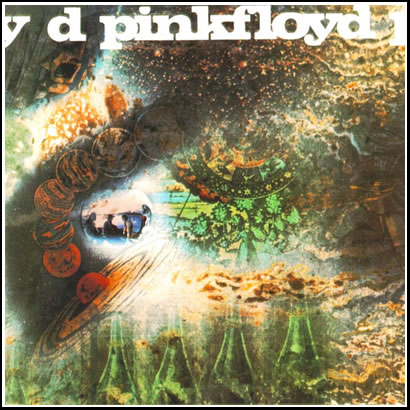
A Saucerful of Secrets (1968)

1. Let There Be More Light
2. Remember a Day
3. Set the Controls for the Heart of the Sun
4. Corporal Clegg
6. A Saucerful of Secrets
7. See-Saw
8. Jugband Blues
It must have been a bit of a jolt—for fans, record executives, and likely the band themselves—when it became clear that Syd Barrett, the creative spark behind Pink Floyd’s remarkable debut, was rapidly unraveling. What started as eccentricity was now full-blown instability. His erratic behavior in the studio and on stage made it clear that something had to give. Enter David Gilmour, a childhood friend of the band, who was brought in—not so much as a replacement, but more as a reinforcement. That replacement, however, would soon become permanent.
A Saucerful of Secrets captures the group in transition. It’s the only album to feature all five members (briefly), and it presents a band trying to rediscover its identity in the absence of its original leader. Barrett does appear on one track—his swan song Jugband Blues—a song so disjointed and surreal it plays more like a postscript than a farewell. It’s arguably the weakest track on the album, and a far cry from the brilliance he displayed on The Piper at the Gates of Dawn. Still, there’s a haunting quality to it. Amid the chaos, there are glimpses of a mind that once shimmered with originality. But the confusion had taken over, and the parting, while sad, felt necessary.
The rest of the band was now tasked with filling the void—and to their credit, they mostly succeeded. Bassist Roger Waters, who had contributed only one song on the debut, steps up here with three compositions, each more confident than the last. The standout is undoubtedly Set the Controls for the Heart of the Sun—a haunting, slow-burn journey through cosmic uncertainty. It retains the otherworldliness of the Barrett era but adds a newfound sense of direction and purpose. Nick Mason’s hypnotic tom drum rhythm anchors the entire piece and elevates it to something otherworldly.
Waters’ Let There Be More Light opens the record with promise, even if it doesn’t quite soar as high. His third contribution, Corporal Clegg, is the band’s first stab at the anti-war themes that would later become a defining element of their catalog. Ironically, the song feels almost too conventional—its satire undercut by an arrangement that wouldn’t feel out of place in a more mainstream psych-pop release. But it does show that Waters was already exploring deeper thematic ground.
Keyboardist Richard Wright handles two tracks, both drenched in melancholic atmosphere. See-Saw is the more successful of the two—light, floaty, and almost pop-oriented by early Floyd standards. It’s oddly soothing, and serves as a nice balance to the more experimental moments.
Then there’s the title track—A Saucerful of Secrets. At over twelve minutes, it was a bold move in a time when singles ruled the charts. The track is entirely instrumental, broken into sections that move from eerie to explosive to ethereal. It serves as a kind of calling card for where the band was headed—a sprawling, abstract collage of noise and space. A decade later, no one would bat an eye at a song of this length, but in 1968, it required patience and an open mind. Still does, actually.
In the end, A Saucerful of Secrets isn't a masterpiece, but it’s a fascinating document of a band in flux. The foundation was clearly shifting. Barrett was gone. Gilmour was in. Waters was rising. And Pink Floyd, as we would come to know them (without the 'the'), were just beginning to take shape.
Go back to the main page
Go To Next Review